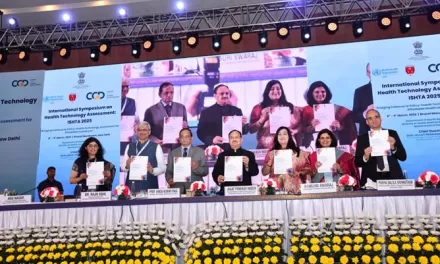A groundbreaking study published today in Nature Medicine reveals that a comprehensive intervention package for managing heavy bleeding during childbirth not only saves lives but does so at minimal additional cost. The research, led by a team from the E-MOTIVE trial, assessed the economic impact of early detection and bundled treatment strategies across 78 hospitals globally.
The E-MOTIVE trial, spanning hospitals in four African countries, randomized participants into either intervention or standard care groups. Results showed a significant reduction in postpartum hemorrhage (PPH) cases among those receiving the intervention, translating to over 1,000 fewer severe bleeding incidents compared to standard care protocols.
Central to the intervention is a calibrated blood collection drape, enabling precise measurement of blood loss—a critical factor in timely treatment decisions. Despite initial concerns about cost, the analysis found that integrating this tool incurred an average additional expense of just $0.30 per patient, making it economically comparable to standard care practices when factoring in clinical outcomes and hospital-specific variables.
Professor Tracy Roberts, the study’s lead author from the University of Birmingham, emphasized the intervention’s cost-effectiveness: “E-MOTIVE demonstrates clear economic benefits in managing postpartum hemorrhage, a condition that claims tens of thousands of lives annually. The modest costs associated with implementing this package underscore its value in global maternal health.”
Moreover, the study highlighted a 60% reduction in severe bleeding incidents—a pivotal finding given that PPH remains a leading cause of maternal mortality worldwide, affecting millions annually, particularly in low-resource settings.
Professor Arri Coomarasamy, Co-Director of the WHO Collaborating Centre on Global Women’s Health at the University of Birmingham, underscored the transformative potential of these findings: “By bundling WHO-recommended treatments and streamlining their delivery, E-MOTIVE not only enhances survival rates but also reduces reliance on scarce resources like blood transfusions in resource-limited settings.”
With WHO endorsement and mounting evidence of its efficacy and affordability, proponents hope that E-MOTIVE’s integration into standard maternal care protocols will usher in a new era of maternal health improvements globally. As Professor Coomarasamy concluded, “Timely interventions like E-MOTIVE offer a lifeline to countless women, ensuring they receive critical care precisely when they need it most.”
For further details on the study’s findings, the complete article is available in Nature Medicine (2024).












